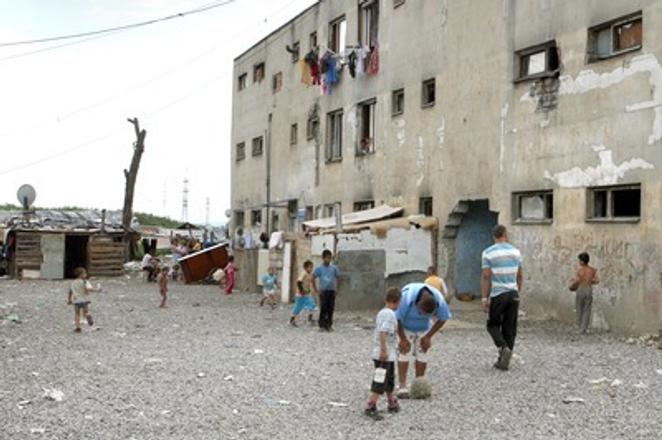Read this story to learn:
How the Budulovska locals describe the raid and how the police inspectorate concluded it
How the case unfolded in Slovak courts
What the ECHR ruling means for Slovak courts and where the case may go from here
What changes is the current interior minister promising and what the prime minister says about the ruling
Róbert Rybár was dragged out of his house. He remembers receiving five or six kicks in his ribs, and several punches to the head. That is how he has repeatedly described the treatment he received from police officers during the June 2013 police raid that Slovakia has since come to know as the Moldava Raid.
Even though several people were left injured after the raid, the investigation did not find any violation of the rules of police actions.
On the pretext of searching for seven men for whom they had arrest warrants, 63 police officers raided the settlement called Budulovská in the eastern-Slovak town of Moldava nad Bodvou on June 19, 2013. They found none of those men, but violence ensued. Several persons were injured and 15 Roma were taken to the police station.
Two weeks later, then Police Corps president Tibor Gašpar backed the local police officers and stated that the Roma had been treating the police with more respect since the raid. Budulovská locals did not agree with his assessment.
“It was all unnecessary violence,” Rybár told the press. “We didn't do anything. On the day of the police raid they came to us, they entered our houses without permission and they started beating us head-on.”
Charges were brought against some of the police officers, but they were all dismissed. On the other hand, Rybár and five more of the beaten Roma were later accused of false testimony against the police officers. Eastern-Slovak courts have been dealing with their cases.
On September 1, 2020, Rybár and his neighbour from Budulovská, Roland Dančo, won their case against the Slovak Republic in the European Court for Human Rights (ECHR). The court upheld the view of the plaintiffs that they suffered inhuman treatment and that the authorities failed to conduct a proper investigation into that ill-treatment. The court awarded €20,000 to each of the two men as non-pecuniary damage, and €6,500 jointly in respect of costs and expenses.
Some see the ECHR ruling as a game-changer in the case. Unless Slovakia learns from the ruling, police brutality will occur again, stated former police investigator Jozef Šátek.
“The ruling talks about the entire politics-police-prosecutor system, which organised, carried out and approved the brutal police raid, then intentionally slowed the investigation of it, and finally manipulated the investigation results to such an extent that it aimed the blade of criminal law against the victims, accused them and charged them,” Šátek wrote on his Facebook page.


